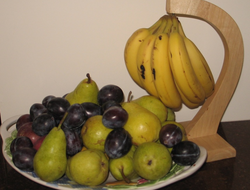Enzymes and your digestion
Published: February 11, 2021
What would we do without enzymes?
These amazing proteins act as catalysts which speed up the rate of metabolic reactions that occur in your body and which enable your body to function.
Enzymes are specific to the job they have to do: that is, digestive enzymes only function in your digestive process and enzymes that enable bone formation are specific to that task.
Hundreds of metabolic reactions occur in your body on an ongoing basis, but can your body produce enough enzymes to meet your body’s needs?
It has been suggested that plant enzymes in the food that you eat, particularly raw vegetables and fruit, can enhance your digestive process and other internal body processes.
However, scientific research suggests that a healthy body can produce all the enzymes it needs, and that enzymes in food are unlikely to aid your digestion or any other body function.
As you age your metabolism slows, but most people continue to produce enzymes sufficient to meet their body’s requirements.
There are exceptions such as people who are lactose intolerant, but for the most part healthy people do not need to supplement their diet with digestive enzymes which may not have any dietary benefit.
In addition, some raw foods are not as easy to digest as when cooked and may even inhibit the action of your own digestive enzymes!
Enzymes function
Enzymes are a specific class of proteins which, as catalysts, speed up the rate of the metabolic reactions that occur in your body and which enable your body to function.
There are 6 classes of enzymes and each class of enzyme has a specific function...link to the full article to learn more
References
1.
Gropper, S.S., Smith, J.L. & Groff (2005). Advanced nutrition and humam metabolism. Belmont. CA: Thomson Wadsworth
2.
Horton et al. (2002). Principles of biochemistry (3rd Ed.). Upper Saddle River, NJ: Prentice Hall.
3.
Klug, W.S. & Cummings, M.R. (2000). Concepts of genetics (6th Ed.). Upper Saddle River, NJ: Prentice Hall.
4.
ahealthyphilosophy

